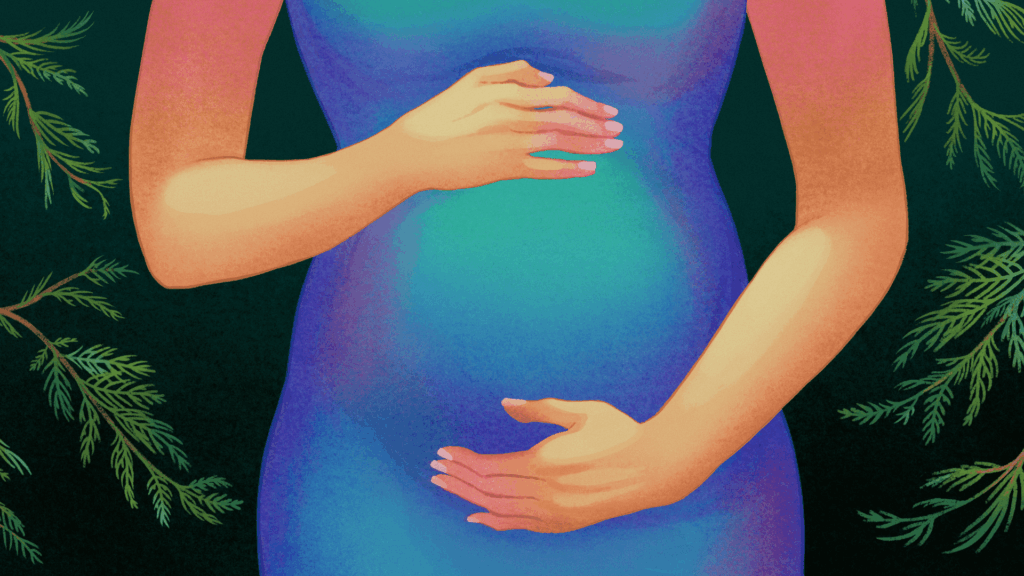This blog post presents a review of the current literature on Indigenous Perinatal Mental Health, exploring key themes, gaps, and emerging insights. Drawing on both academic sources and community-informed perspectives, this review is enriched by the voices of leaders from Indigenous-led associations who offer vital context, critique, and cultural grounding. Their commentary not only deepens our understanding of the complex interplay between perinatal mental health and Indigenous experiences but also affirms the importance of Indigenous leadership in shaping responsive, culturally safe care.
The Gaps in Research: Why Aren’t We Talking About This?
As I began researching this topic, I was struck by how little information exists on Indigenous Perinatal Mental Health (PMH). The absence of data speaks volumes; this issue has been overlooked for far too long. A 2020 systematic review published in the Canadian Journal of Psychiatry by Sawayra Owais & colleagues found that Indigenous women are nearly twice as likely to experience postpartum depression as non-Indigenous women, with prevalence rates reaching 31%. Despite this, culturally safe care remains scarce, forcing Indigenous women to navigate their struggles alone – often in silence.
This silence is not a choice but rather a symptom of a system that has long failed Indigenous mothers. PMH, essential to the well-being of both mother and child, remains riddled with barriers.
While many existing studies examine general barriers to maternal health care, very few explore the emotional toll these challenges create. A 2022 study by Zarish Jawad, Nikita Chugh, & Karina Daddar found that PMH services for Indigenous mothers are often inaccessible, underfunded, and culturally inappropriate, making it even harder for women to seek the support they need.
A Legacy of Mistrust
To understand why Indigenous mothers hesitate to seek PMH care, we must first acknowledge the deep-rooted mistrust in Canada’s health-care system. For generations, Indigenous families have been subjected to policies that severed the bond between parent and child, making it challenging to trust institutions meant to provide care. Health care settings have not historically been places of healing for Indigenous people.
Robin Smoker-Peters, Instructor of Indigenous Health at Western University, reinforces this reality: “These are not just events of the past. The last residential school in Canada closed in 1996, and forced sterilizations were still occurring up until a few years ago. This is not just history; it is still happening and continues impacting how Indigenous people engage with health care.”
Even today, Indigenous mothers fear that seeking PMH care may lead to child welfare involvement. According to Census 2021, Indigenous children make up 53.8% of those in foster care despite representing only 7.7% of Canada’s entire child population. Families are torn apart due to systemic biases rather than genuine concerns about parental capability.
A deeply harmful policy that reinforced this fear was the Birth Alert system, which flagged Indigenous mothers as child welfare concerns, often based solely on their connection to residential school survivors. As Smoker-Peters explains, it operated on the assumption that Indigenous mothers were unfit, leading to newborns being taken from their mothers without cause. While now banned in B.C., many Indigenous women still hesitate to seek PMH support.
The Disconnect
For Indigenous mothers, Western PMH frameworks lack the culturally grounded support they may need. A 2023 study by Christina DeRoche & colleagues found gaps in culturally appropriate care for Indigenous parents after surveying perinatal professionals about barriers diverse populations face in accessing PMH care.
One provider shared, “Do not forget about Indigenous PMH, as they are referred to us for obstetrical care, but we are unsure of what to do after [receiving] a diagnosis,” reflecting a system with no clear, culturally relevant care paths. Another noted the “lack of Indigenous-specific services for perinatal mood issues.” Even providers recognize their limited ability to offer culturally sensitive care, yet these gaps will persist without policy-level change.
Addressing Indigenous PMH means more than acknowledging disparities; it requires action that centers on Indigenous voices, traditional healing, and culturally safe care. Smoker-Peters stresses this point: “There is an overfocus on intergenerational trauma and not enough attention on how the system itself continues to be racist and harmful. Indigenous mothers should not be viewed through a deficit lens. They have immense strength and resilience, and the system needs to recognize that.”
Indigenous-Led Solutions: A Path Forward
Despite these challenges, Indigenous midwives and community-driven health programs are working to bridge these gaps. The National Indigenous Council of Midwives (NICM) has advocated for Indigenous-led maternal care that respects traditional knowledge while integrating modern medicine.
Claire Dion-Fletcher, past co-chair of NICM, emphasizes the systemic issues that Indigenous women face in health-care settings during a Canadian Senate meeting in March 2024: “I understand that doctors and all healthcare providers have expert knowledge in health and medicine… but we also have to recognize that Indigenous people and Indigenous women have expertise in their bodies. When we continuously, as health-care providers, say what we think is best for Indigenous people, we are taking away their ability to say what is best for them and to make decisions about themselves.”
Indigenous midwives are essential in ensuring reproductive care upholds autonomy and informed consent. NCIM Executive Director Ellen Blais states, “We are prevention by applying the principles of free, prior, and informed consent, continuity of care, culturally rooted care, and patient advocacy.”
This advocacy highlights the vital role Indigenous midwives play not only in providing care but also in championing the rights and dignity of Indigenous women.
Incorporating Indigenous midwifery into perinatal care models is more than a health-care improvement; it’s a step toward reconciliation. By supporting Indigenous-led maternal care, we can create a system where Indigenous mothers feel safe, respected, and empowered throughout their perinatal journey.
An important initiative is the Bringing Birth Home project, which aims to restore Indigenous midwifery and support community-based births, reducing the need for long-distance travel. As highlighted in the Association of Ontario Midwives’ article “Bringing Birth Home: Restoring Indigenous midwifery,” historically, every Indigenous community had a midwife providing comprehensive care, but colonial policies disrupted these traditions. This initiative works to restore midwifery practices and keep birth rooted in the community.
What Needs to Change?
For starters, Indigenous-led PMH programs need more funding and support from our government. Organizations are already doing this work but need the resources to expand their outreach.
Another big piece of the puzzle is representation. Indigenous women deserve to see themselves reflected in their care providers, yet there is a shortage of Indigenous health-care professionals. Dion-Fletcher explains that an Indigenous response “would be rooted in relationships and focused on prevention, and [she] thinks one of the key ways that we can do this is through Indigenous health-care providers, Indigenous midwives, Indigenous doctors, nurses, and patient navigators who are there to promote the autonomy.” Encouraging Indigenous students to enter these fields, providing scholarships, and ensuring that non-Indigenous health-care providers receive cultural safety training are all steps in the right direction.
It’s Time to Listen
For too long, Indigenous mothers have been left out of conversations that shape their PMH care. The barriers they face go beyond access – they’re rooted in history, trust, and the right to health care that respects who they are.
But the solutions already exist. Indigenous midwives and community health workers are offering impactful, culturally rooted support. If we genuinely want to see better maternal health outcomes for Indigenous families, policy makers should better engage and include Indigenous voices – by funding Indigenous-led programs, increasing representation, and ensuring that seeking help is seen as a right, not a risk.
As we push for change, we must also recognize the histories and rights of Indigenous peoples, whose voices have too often been ignored. Ultimately, this isn’t just about policy—it’s about people.
I acknowledge that the land on which this article was written and researched is the unceded and unsurrendered territory of the Algonquin Anishinaabe Nation.






